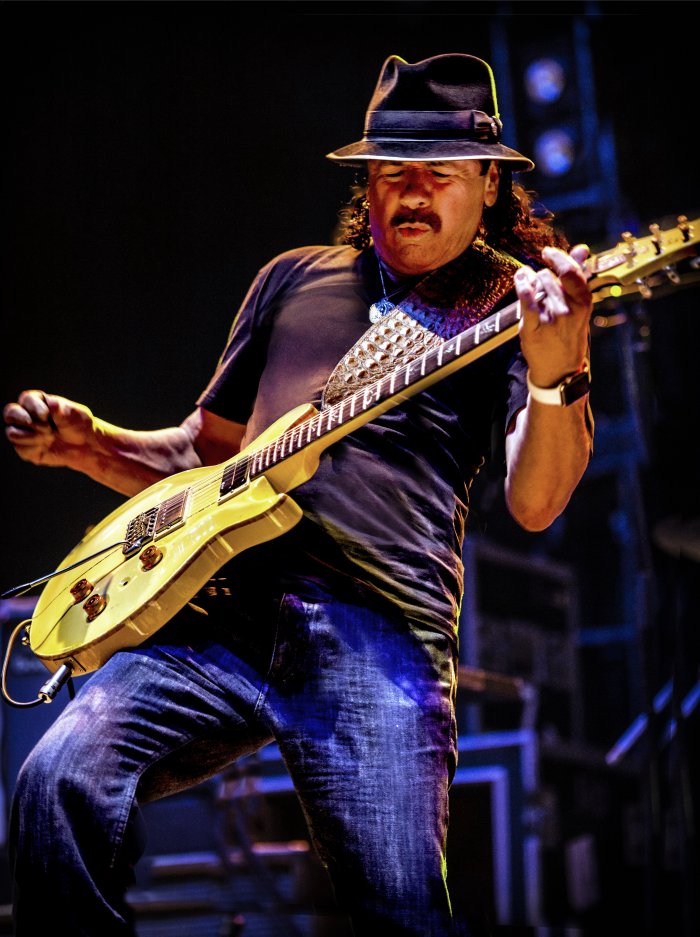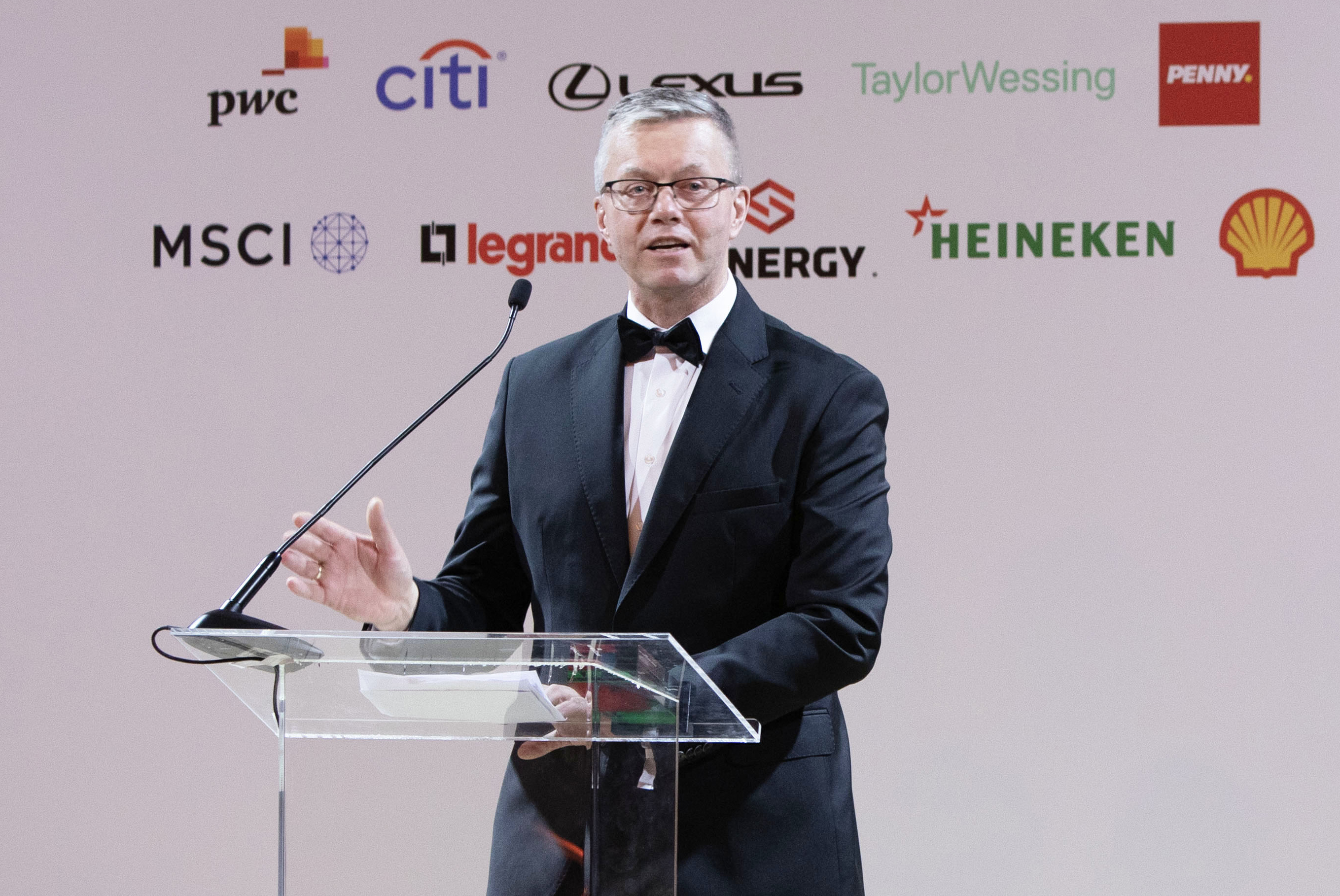Saluting Carlos Santana’s Secret Hungarian Connection

Photo by Joshua N. Timmermans
Carlos Santana was due to play the Budapest Arena on March 19. That has now been cancelled, but this remains the city that gave birth to the man who was perhaps Santana’s greatest inspiration.
Carlos Santana. Photo by Joshua N. Timmermans.
Santana’s career began in late 1960s San Francisco, where he pioneered a fusion of Afro-Latin-blues-rock that transcended genre boundaries. Which makes it even more intriguing that he should be so influenced by a jazz guitarist.
The group Santana named after himself was one of the breakout stars of the Woodstock festival in 1969, the same year its debut album released. Featuring Top 10 hit “Evil Ways”, the album stayed on the Billboard chart for two years. Number one album Abraxas, which followed, is 50 years old this year.
Since then, Santana has released almost 40 albums and sold more than 100 million records. The band has won 10 Grammy awards and entered the Rock and Roll Hall of Fame in 1998.
“Africa Speaks”, released in 2019, showed that Carlos Santana has lost none of his fire, soul and virtuosity. Produced by Rick Rubin, known for sympathetically reinvigorating the careers of mature rock and rollers including Johnny Cash and Tom Petty, the album featured Spanish singer Concha Buika, a fine performer in her own right.
The “New York Times” said it “ranks with the fiercest albums in Santana’s 50-year career.”
Well-known for his interest in spiritual matters, Santana is also devoted to social activism and humanitarian causes. The Milagro Foundation, established by him and his family in 1998, has granted more than USD 7 million to non-profit programs focused on the arts, education and health that support underserved children and youth.
This combination of musical and spirituality suffuses Santana’s live performance.
Miracles Happen
He has said, “When you come to a Santana concert, the miraculous happens. Miraculous means, transforming darkness into delight. I feel like a 20-year-old on stage playing with this band, and they deliver high energy on every song. When we hit the stage, we know we will touch your heart and make you dance, sing, cry, laugh and leave your baggage behind. Our vision-mission is designed to elevate, transform and illumine consciousness to make you want to embrace your own light and allow for miracles and blessings to flow from your own heart.”
I was hoping Santana would have achance in Budapest to acknowledge his love of legendary Hungarian jazz guitarist Gábor Szabó.
Szabó was born in Budapest in 1936 and died here in 1982. He was inspired to play guitar by a Roy Rogers cowboy movie and pretty much taught himself. Today, he is a cult hero for jazz aficionados.
All Szabó took with him when he crossed the border from Hungary into Austria in November 1956 was the thing that mattered most to him. As he later told “Jazz” magazine, he thought his acoustic guitar “would be a pacifier in case we were caught. At night, though, it looked like a machine gun; I may have been inviting trouble now that I think about it.”
Szabó made it to the United States. In 1958, while studying at the Berklee School of Music in Boston, he took part in the historic Newport Jazz Festival. After Berklee, Szabó joined The Chico Hamilton Quintet. As he told “Down Beat” in 1965, “It wasn’t until I joined Chico Hamilton in 1962 that I developed my own style and really loosened up.”
Paying Tribute
Szabó and Santana first met in 1966. Santana has paid tribute to Szabó’s style ever since.
In 1970, Santana had an enormous hit when he combined a song called “Gypsy Queen” with “Black Magic Woman”, written by Peter Green, founder of Fleetwood Mac. “Gypsy Queen,” from the “Spellbinder” album was written by Szabó. It also gave The Doors their entire intro to “The End”.
Santana adored Szabó’s work, calling it “fantastic, spellbinding music.” It symbolized for Santana what was happening in the mid-1960s. The Beatles were, as Santana put it, “starting to interject a deeper thought” into pop. By then, Szabó was already experimenting with playing intelligent pop songs like Jefferson Airplane’s “White Rabbit” so, Santana said, “it was all merging without becoming confusion, fusing, all coming together very naturally.”
Santana saw Szabó as being on a par with Jimi Hendrix, high praise indeed, especially in his innovative use of feedback. The difference was that, where Hendrix deployed feedback in a wild, psychedelic fashion, Szabó used it like a drone, because he was more into Indian music.
After Santana and Szabó became friends, the Hungarian guitarist would stay at his house.
Hanging out together, Santana noticed that “Gábor was very focused on Gábor. He’d listen to other things but not as much as he’d listen to his own stuff. He’d take only a little bit from people, enough that he needed. But, with him, he could take something like ‘My Foolish Heart’ or ‘Autumn Leaves’ and immediately make it like it’s the first time you ever heard that song. It takes a very strong soul personality, not so much an ego personality, to be able to put your fingerprints on somebody else’s song. You have to go home, unplug the TV and telephone and plug in and disconnect yourself. Pull the song apart, put it back together again.”
According to Santana, he wasn’t the only rock and roll guitarist influenced by Szabó. “We all wanted to be B.B. King when we grew up. But as soon as we grew up, we went to Gábor. [.…] B.B. had me in a spell. When I heard Gábor, I knew there were other possibilities with the guitar. [.…] Guitar became even more fun to play.”
“It is with great disappointment that I have to inform our fans that we are canceling our upcoming Europe Tour,” President of Universal Tone Management, Michael Vrionis said in a statement. “Many countries have made the decision to restrict public gatherings in excess of 1,000 people to curb the potential spread of coronavirus (COVID-19). While we deeply regret this unfortunate circumstance, the safety of our fans is the main priority for the Santana Organization,” he added. “We will keep you all informed of new performance dates as they are made, and will make every effort to return to Europe soon.”
SUPPORT THE BUDAPEST BUSINESS JOURNAL
Producing journalism that is worthy of the name is a costly business. For 27 years, the publishers, editors and reporters of the Budapest Business Journal have striven to bring you business news that works, information that you can trust, that is factual, accurate and presented without fear or favor.
Newspaper organizations across the globe have struggled to find a business model that allows them to continue to excel, without compromising their ability to perform. Most recently, some have experimented with the idea of involving their most important stakeholders, their readers.
We would like to offer that same opportunity to our readers. We would like to invite you to help us deliver the quality business journalism you require. Hit our Support the BBJ button and you can choose the how much and how often you send us your contributions.









